OUR LANGUAGE ASSISTANTS
This academic year 2021-2022, we have five language assistans, we are very lucky to have the opportunity to have them in our lessons and learn from them. Our multilingual high school students have interviewed them and this is what they have found out.
Avi Pandher
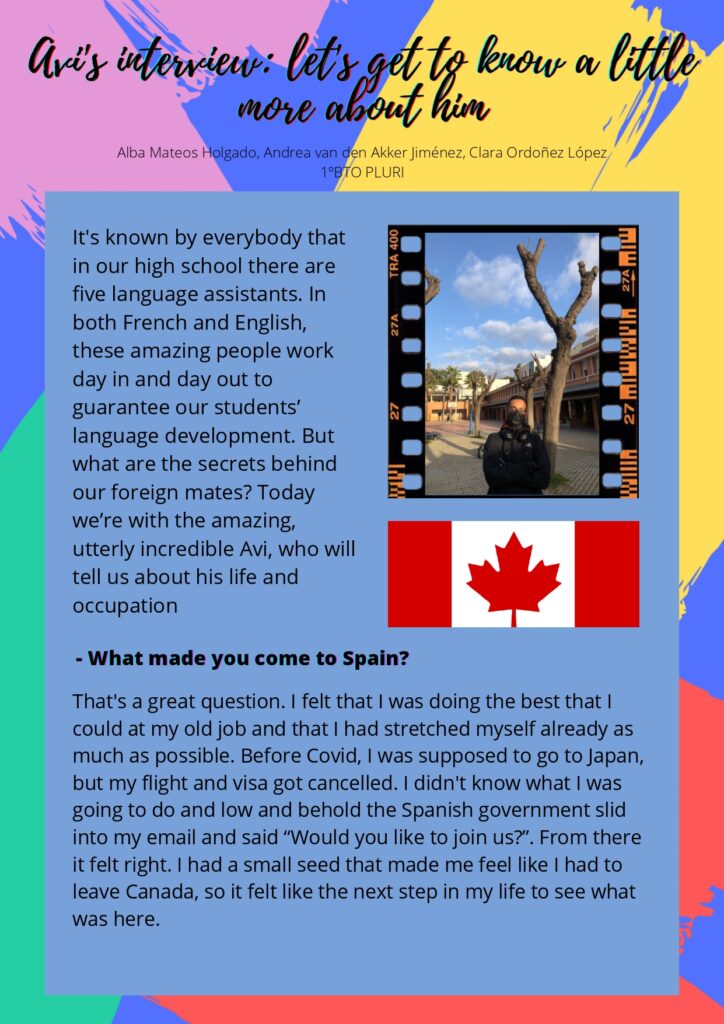
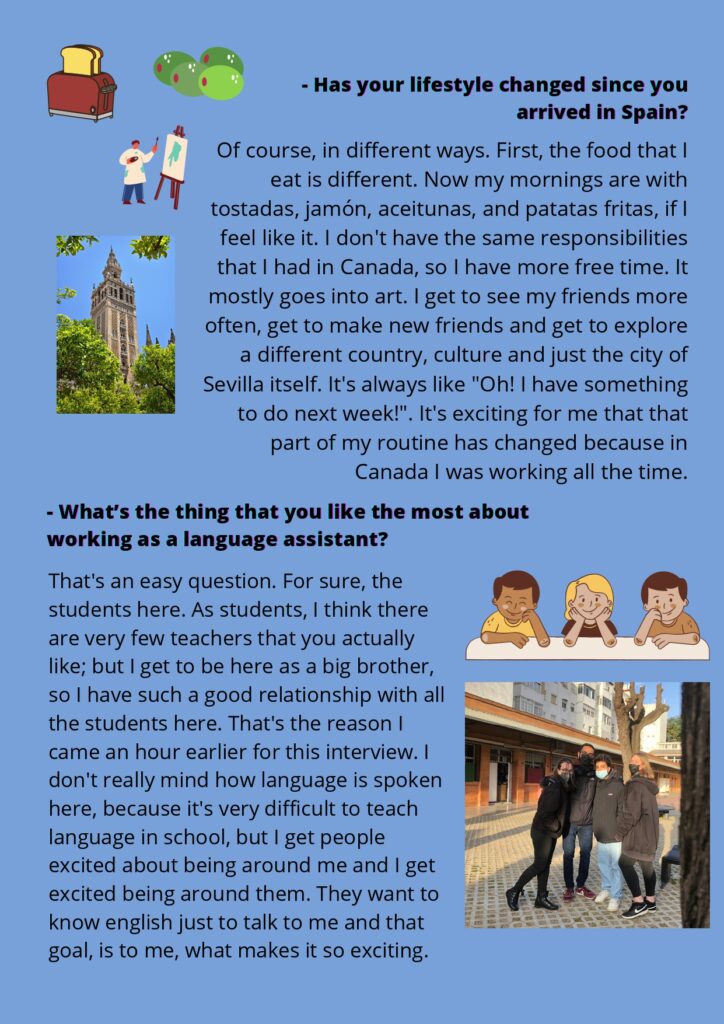
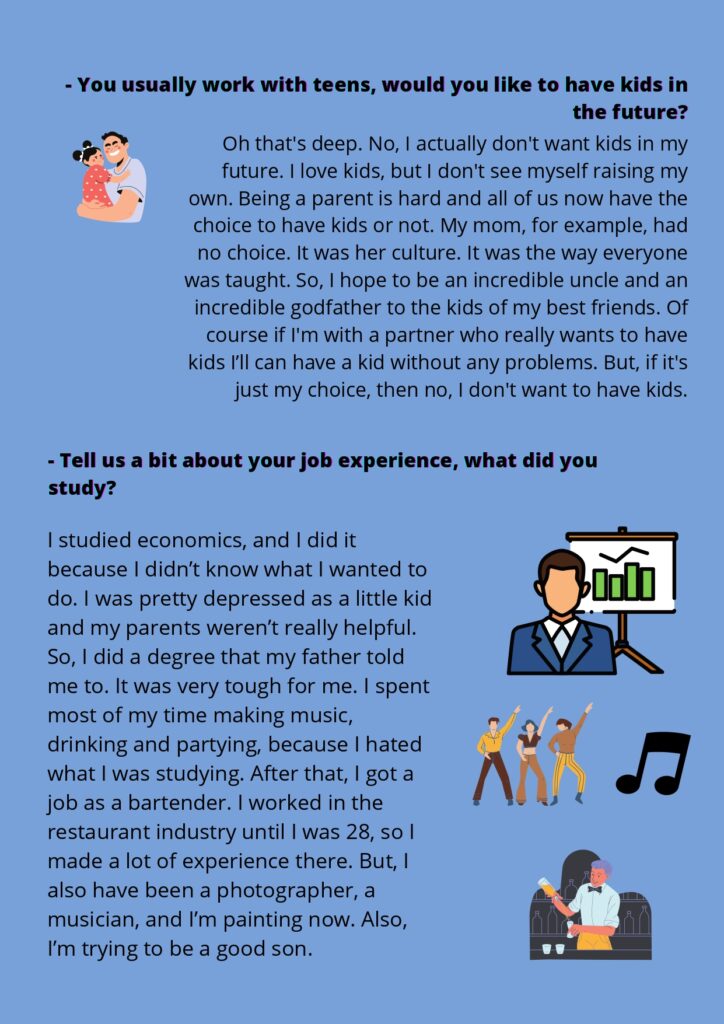
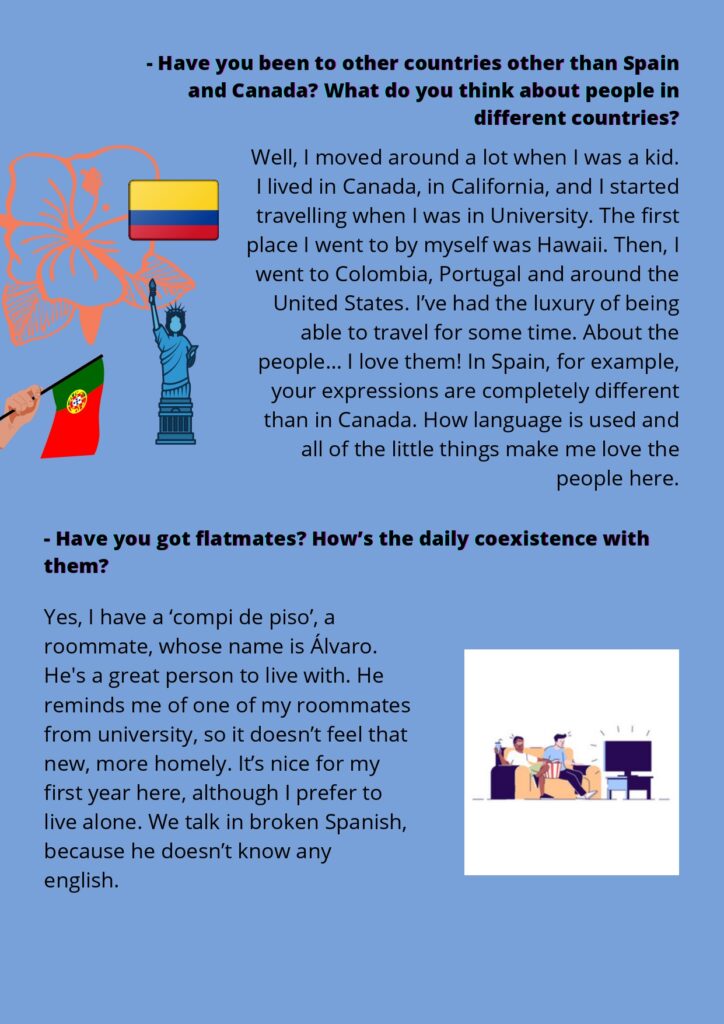
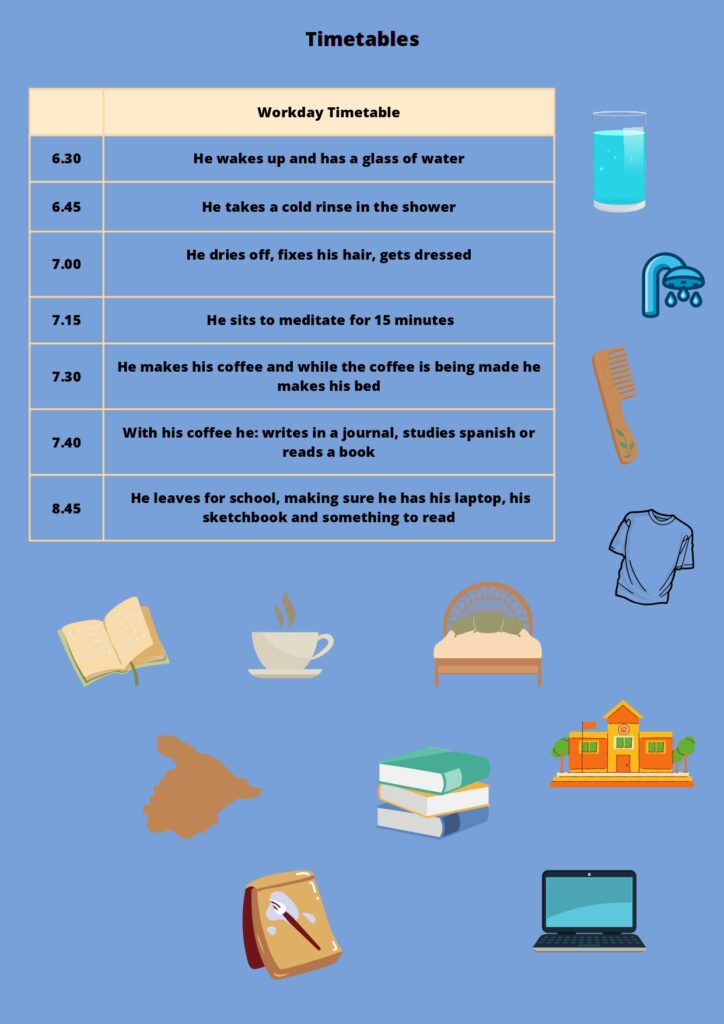
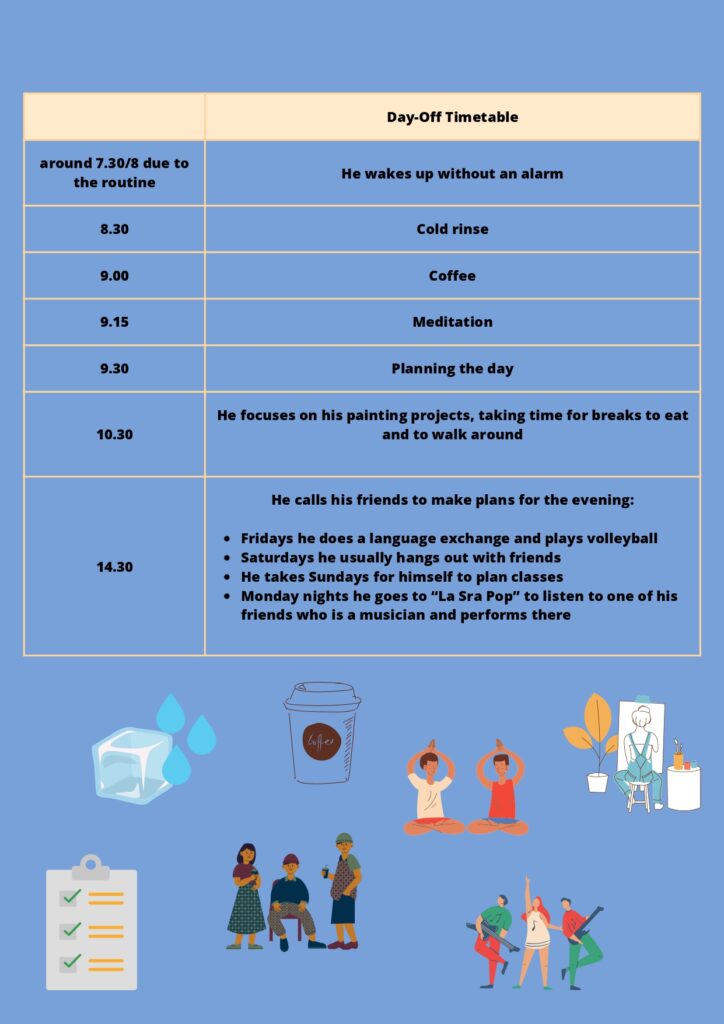
Julien Bistricky
Born in France, Julien has always wanted to teach French to children from another country, like he’s doing now in Spain, that’s why he dreams to become an official French teacher some day. Although he likes Spanish things, as the potato omelet, Julien wants to travel to Argentina and teach there, it’s his favourite country. In addition, he’s a great fan of Paris Saint-Germain (PSG).
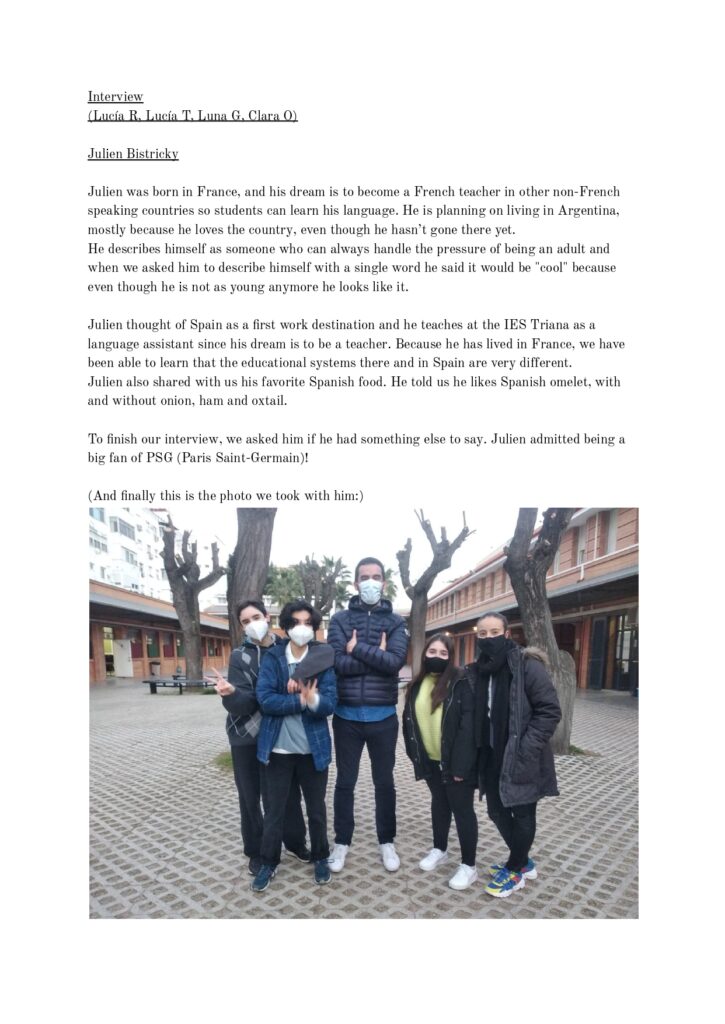
Sophie Fernández
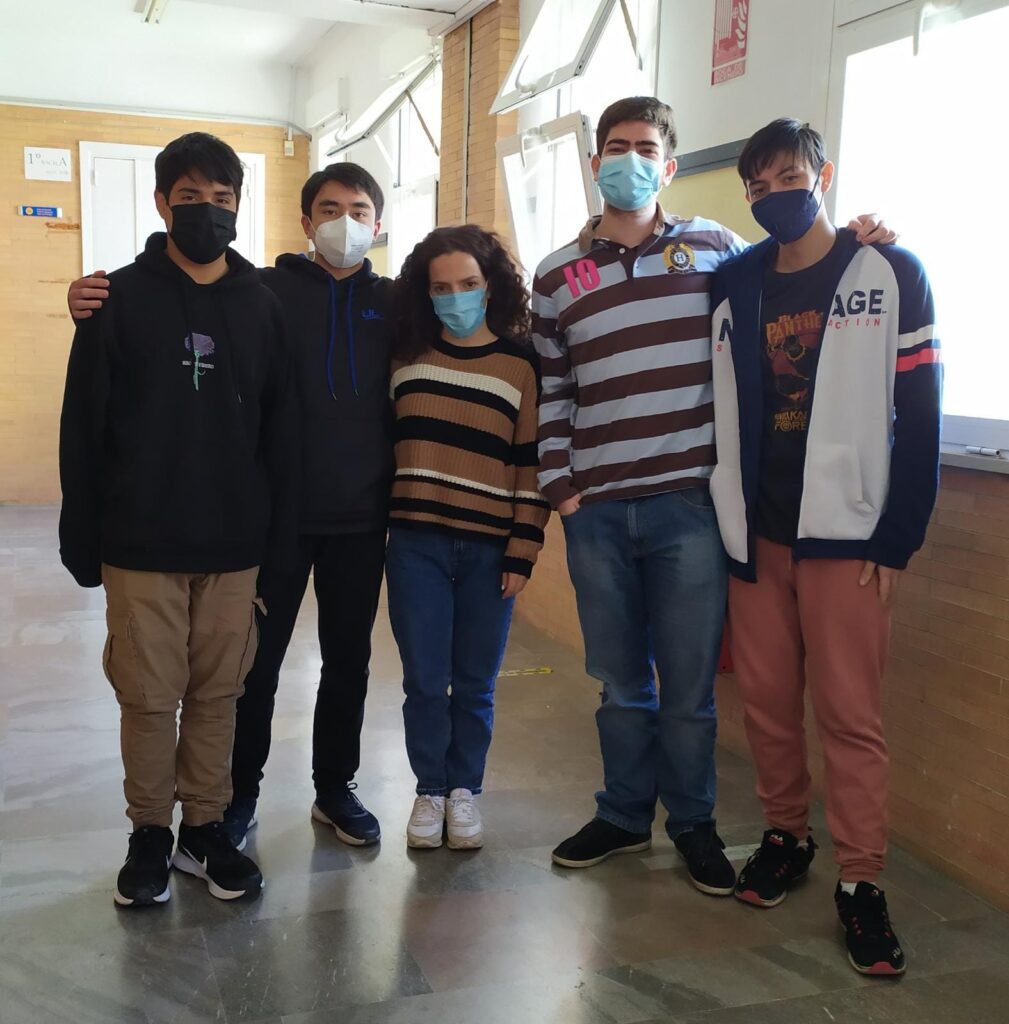
Have you worked at other places?
I’ve worked at another school in Paris, near the Eiffel tower, but only for a few months; I’ve also worked in some language academies here in Seville.
Do you want to learn other languages?
I’m trying to learn English and Italian, which I studied six years ago, but I forgot because I didn’t use it. I also really want to study Arabic.
What would you want to improve about this school?
I think the relationship between teachers and students could be improved, not only from teachers but also from students.
What do you like the most about living in Seville?
The weather in Seville, because it’s always cloudy in Paris. The people, because they aren’t always irritated like in Paris, and, obviously, flamenco.
How would you define your experience as a language assistant? I would define my experience as enriching.
It was complicated to get adapted, but eventually I settled down thanks to teachers accompanying me. Especially Rafael Lasarte.
Do you have families outside of Spain?
I’ve got a family in France, but also in Spain.
When you finish this job, do you plan on going back to France?
I don’t want to return to France. I want to stay in Spain.
What do you think about Sevillians?
I think that the people in Seville are very different from French people, but Sevillians are definitely better.
Was it difficult to get adapted to Seville?
It was easy, because I would come here many times to practice dancing, and my family usually speaks in Spanish.
Do you think that Spanish stereotypes are true?
I think that the stereotypes aren’t true, because I’ve met a lot of Spanish people who are the opposite of the ones who appear in these stereotypes.
Do you like Spanish omelets with or without onions?
With onions.
Vanessa Jiménez
